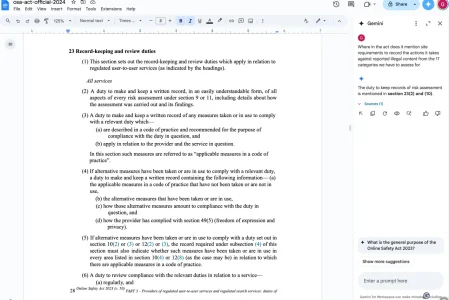ForumFan
Well-known member
I will see if I can find out which document/section it is in later, but there is a bit about preserving the freedom of expression for UK users which implies they can complain if we delete their posts and then we have to respond to that complaint in a timely fashion.
I am fairly sure I read somewhere that this had to be held for 3 years too unless I dreamt that. There really is so much to take in and its scattered across multiple documents.
Xenforo obviously already has a "reason for deletion" field which will go some way towards this, but we might have to make that compulsory, and also ensure posts are only ever soft-deleted.
BARF! So glad I don't live or operate in that market. Holy crap.
